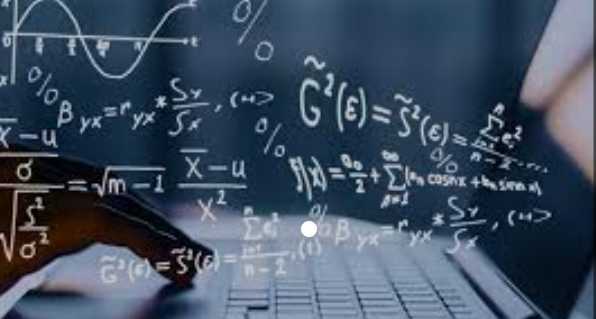Mathematics and Coding: Understanding the Connection

"I'm not good at numbers.” “Can I still work in development?” What kind of developer you want to be will determine the answer to that question.
It should go without saying that having a strong mathematical foundation will increase your career prospects as a software engineer. If math is one of your strengths, you can anticipate having greater freedom to investigate mathematically demanding fields like game development or data science.
However, logical thinking is the most important skill. People with strong mathematical backgrounds do well in the software development field because they are used to applying their logical problem-solving skills. The same factor also explains why philosophy majors usually succeed as developers. As a result, success depends just as much on having a sound logical mind as it does on possessing comprehensive mathematical knowledge.
Reading this blog will teach you more about the qualifications and the type of math required for coding.
- AI/ML Developer

To create and deploy machine learning algorithms that can learn from data and make predictions or judgments, AI/ML engineers mainly rely on mathematics. For those who create AI and machine learning algorithms, knowledge of linear algebra, calculus, statistics, probability theory, and optimization are crucial.
The model’s parameters and the data are altered and transformed using linear algebra. Calculus is used to identify the best values for the parameters, which improves the performance of the model.
Using incomplete or noisy data, predictions can be made using the principles of probability theory. Statistics are used to evaluate the model’s performance and reliability. To identify the optimal answer to a given problem, optimization is applied.
For an AI/ML developer to create efficient and reliable machine learning models that can handle complex and varied data, a solid mathematical basis is essential.
- Game Developer

Game creation is a highly technical and artistic field that necessitates expertise in a number of mathematical fields. Geometry is one of the main branches of mathematics used by game creators. The 3D models and objects that make up the game environment are made using geometry.
The scaling, rotation, and morphing of game-world objects also rely on linear algebra, according to game developers. Mathematics is used to do physical calculations such as acceleration and velocity, which are necessary for developing realistic game mechanics. In games where random events like the roll of the dice or the possibility of an attack reaching its target occur, probability theory and statistics are applied.
The logic and techniques used to regulate how the game’s characters and objects behave are also created by discrete mathematicians. For game creators to create immersive and captivating gaming experiences for gamers, a solid background in mathematics is essential.
- Mobile Application Developer

The creation of efficient and effective mobile applications requires a number of mathematical disciplines. Discrete mathematics is one of the main branches of mathematics used by developers of mobile applications. In order to tackle issues with data structures, algorithms, and logic, discrete mathematics is used. It lays the groundwork for creating effective algorithms for categorizing, searching, and enhancing data in mobile apps.
In the creation of mobile apps, calculus and linear algebra are also utilized, particularly in the creation of images and user interfaces. In order to track user activity and make data-driven judgments about the app’s features and functionality, probability theory and statistics are employed for data analysis.
Furthermore, cryptography — which makes use of number theory and abstract algebra — is frequently used by developers of mobile apps to secure user data and transactions. To create robust, effective, and secure mobile applications that satisfy the expectations of their customers, developers of mobile applications must have a solid background in mathematics.
- Back-End Web Developer

Math is a tool used by back-end web developers to create scalable, effective, and dependable web applications. Discrete mathematics is a key topic of mathematics for back-end web developers since it is utilized to create algorithms for managing complicated computations and processing enormous volumes of data.
Specifically in areas like optimization and data analysis, web development also makes use of calculus and linear algebra. To construct reliable and effective online applications, data modeling and analysis require the use of probability theory and statistics. Also crucial to web development are cryptography and network security, which call for the use of number theory and abstract algebra.
For back-end web developers to create systems that can manage massive amounts of data, conduct complicated computations, and offer dependable and secure services to their consumers, a solid background in mathematics is essential.
- Front-End Web Developer
Designing and creating the user interface and user experience of online applications is the main focus of front-end web development. Although the profession does not require in-depth mathematical expertise, some mathematical principles may be employed in front-end web development processes like graphic design and animations.
HTML, CSS, and JavaScript are the main tools used by front-end web developers to design the application’s visual style and add interactive features. While some aspects of design, such as the positioning and layout of elements, may use math concepts like geometry and trigonometry, these are typically straightforward calculations that can be carried out using only rudimentary math abilities.
Therefore, in order to create aesthetically pleasing and user-friendly web applications, front-end web developers do not need extensive knowledge of mathematics but rather a strong understanding of web development languages and tools.


Comments
Post a Comment